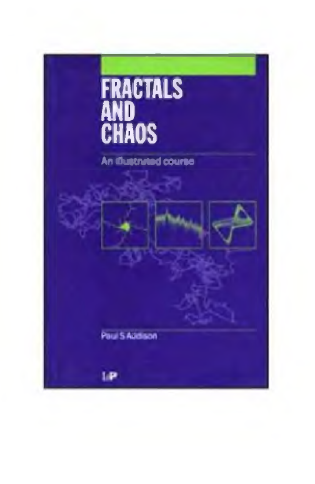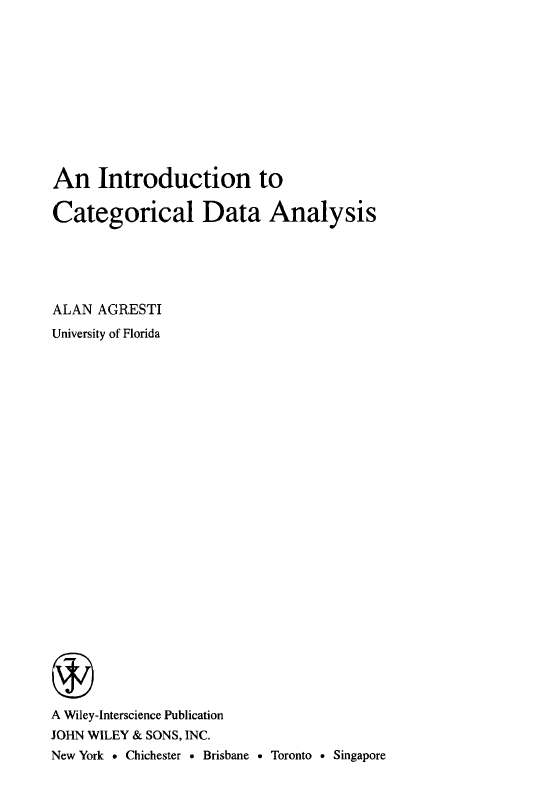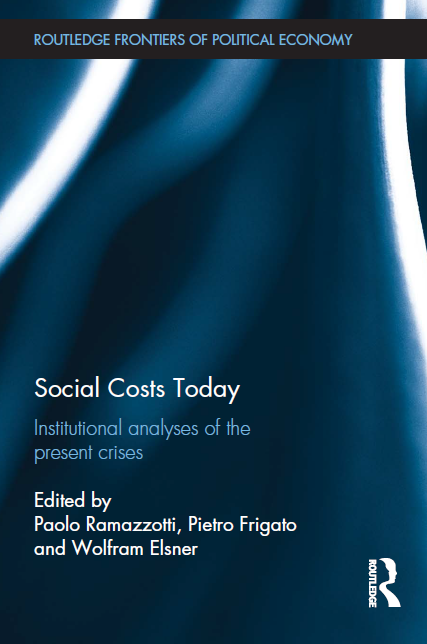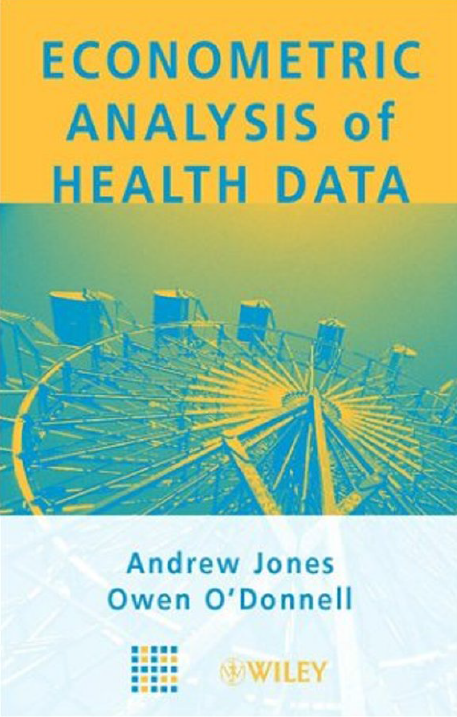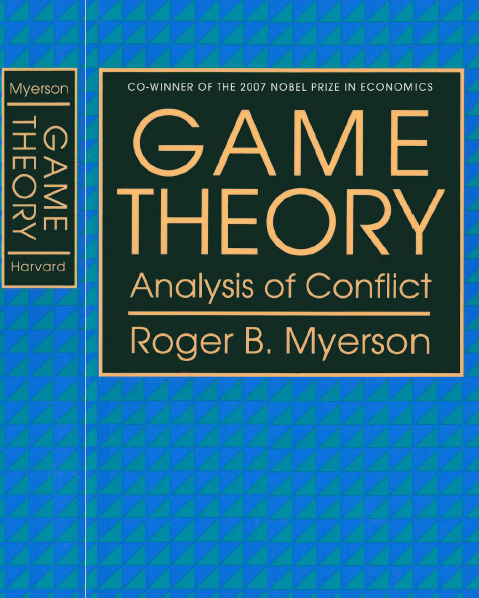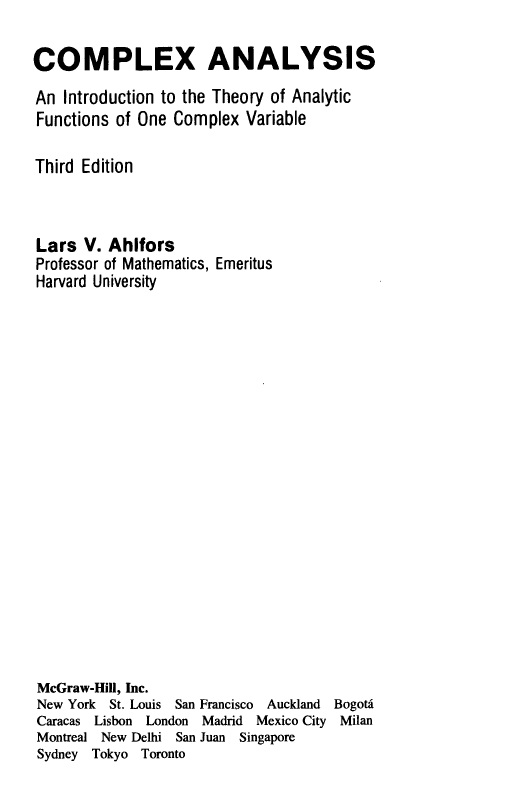-
-
-
-
-
Social Costs Today Institutional analyses of the present crises
Ramazzott Paolo, Pietro Frigato, Wolfram Elsner,Matematika, -
-
-
-
-
Practical descriptive geometry
William Griswold Smith,During his several years of teaching descriptive geometry to combined classes of engineering and geology students the author has become convinced that the two groups should be separated and offered a different presentation of the subject.
-
Fractals and chaos an illustrated course
Addison Paul S.,The aim of this textbook is to provide the reader with an elementary introduction to fractal geometry and chaotic dynamics. These are subjects which have attracted immense interest throughout the whole range of numerate disciplines, including science, engineering, medicine, economics, and social science, to name but a few. The book may be used in part or as a whole to form an introductory course in either or both of the subject areas. The text is very much 'figure driven' as I believe that illustrations are extremely effective in conveying the concepts required for comprehension of the subject matter of the book. In addition, undue mathematical rigour is often avoided within the text in order to provide a concise treatment of specific concepts and speed the reader through the subject areas.
-
An Introduction to Categorical Data Analysis
Agresti Alan,In recent years, the use of specialized statistical methods for categorical data has increased dramatically, particularly for applications in the biomedical and social sciences. Partly this reflects the development during the past few decades of sophisticated methods for analyzing categorical data. It also reflects the increasing methodological sophistication of scientists and applied statisticians, most of whom now realize that it is unnecessary and often inappropriate to use methods for continuous data with categorical responses. This book presents the most important methods for analyzing categorical data. It summarizes methods that have long played a prominent role, such as chi-squared tests and measures of association. It gives special emphasis, however, to logistic regression and loglinear modeling techniques. These methods share many features with linear model methods for continuous variables.
-
Social Costs Today Institutional analyses of the present crises
Ramazzott Paolo, Pietro Frigato, Wolfram Elsner,This book deals with the causes of the present crises, but it claims that causes and policy implications cannot be properly assessed by focusing on allocative efficiency or income growth alone: it contends that a more general approach is called tor. based on social costs. It docs not deal with social costs according to the Pigou-vian or the C'oasian traditions. It draws on the work of Original Institutional Economics (OIE) such as Thorstcin Vcblcn. Kart William Rapp and Karl Polanyi. on post-Keynesians such as Hyman Minsk)' and. in general, on authors who have provided insights beyond the conventional wisdom of economic thought. The assumption underlying the book’s social cost perspective is that social costs arise because the money-centered accounting of capitalist market economics is biased relative to social requirements and needs. Although social costs may sometimes have a monetary dimension, they cannot be dealt with in money terms alone. What is at issue at a more fundamental level is that (1) labor and knowledge, nature, money and finance, and problem-solving social institutions arc treated as commodities. (2) our common knowledge is often distorted in order to favor vested interests. (3) whatever competition one might achieve, it cannot deal with the social dilemma between individualist profitability and societal serv iceability and. finally, (4) when social costs rise and the quality of life declines, so docs the ability of democratic collective action. Social costs, in this perspective, identify the issues that need to be addressed if public policy would wish to prevent the economy from subsuming societal relations and freedom. Social costs, in this evolutionary-institutional perspective, particularly elaborated by Karl William Kapp. both precede and follow the crises, as causes and effects of the current financial, real economic, resources and food, energy and climate, social, political and moral crises. The sections in this book provide a framework that better allows us to situate the issues and to appreciate the crises.
-
Econometric Analysis of Health Data
Andrew M. Jones,The purpose of this book is to give readers convenient access to a collection of innovative applications of econometric methods to data on health and health care. The contributions are selected from papers presented at the European Workshops on Econometrics and Health Economics which have been published in Health Economics. The Workshops were established in York, with meetings in 1992 and 1993. Since then they have taken place annually, with locations in eight different European countries. Publication of the present volume marks the tenth anniversary of the Workshop series, the overall aim of which is to provide a forum for the development and dissemination of econometric methods in health economics. When the Workshops were first established. there were relatively few European researchers at the frontiers of quantitative research in the area. Advances in quantitative techniques and the increased availability of datasets and computing technology had created the potential for large returns from attracting more researchers into health econometrics. There are indications that these returns are now being reaped. Over the years, there has been a steady rise in the quantity and general quality of submissions received for each Workshop. We would like to thank everyone who has participated in the Workshop series, whether as an author or a discussant, and all of those who have reviewed papers for Health Economics. Our particular gratitude goes to the local organisers of the Workshops: Eddy van Doorslaer (Antwerp. 1994), Lise Rochaix (Paris. 1995), Guillem Lopez-Casasnovas (Barcelona, 1996). Joao Pereira (Lisbon, 1997), Unto Hakkinen and Miika Linna (Helsinki, 1998), Giacomo Pignataro and Ilde Rizzo (Catania. 1999) and Maarten Lindeboom and France Portrait (Amsterdam. 2000).
-
Game Theory Analysis of Conflict
Roger B. Myerson,Game theory has a very general scope, encompassing questions that are basic to all of the social sciences. It can offer insights into any economic, political, or social situation that involves individuals who have different goals or preferences. However, there is a fundamental unity and coherent methodology that underlies the large and growing literature on game theory and its applications. My goal in this book is to convey both the generality and the unity of game theory. I have tried to present some of the most important models, solution concepts, and results of game theory, as well as the methodological principles that have guided game theorists to develop these models and solutions. This book is written as a general introduction to game theory, intended for both classroom use and self-study. It is based on courses that I have taught at Northwestern University, the University of Chicago, and the University of Paris-Dauphine. I have included here, however, somewhat more cooperative game theory than I can actually cover in a first course. I have tried to set an appropriate balance between non-cooperative and cooperative game theory, recognizing the fundamental primacy of noncooperative game theory but also the essential and complementary role of the cooperative approach. The mathematical prerequisite for this book is some prior exposure to elementary calculus, linear algebra, and probability, at the basic undergraduate level. It is not as important to know the theorems that may be covered in such mathematics courses as it is to be familiar with the basic ideas and notation of sets, vectors, functions, and limits. Where more advanced mathematics is used, I have given a short, self-contained explanation of the mathematical ideas.
-
Complex analysis
Lars V. Ahlfors,Complex Analysis has successfully maintained its place as the standard elementary text on functions of one complex variable. There is, nevertheless, need for a new edition, partly because of changes in current mathematical terminology, partly because of differences in student preparedness and aims.



